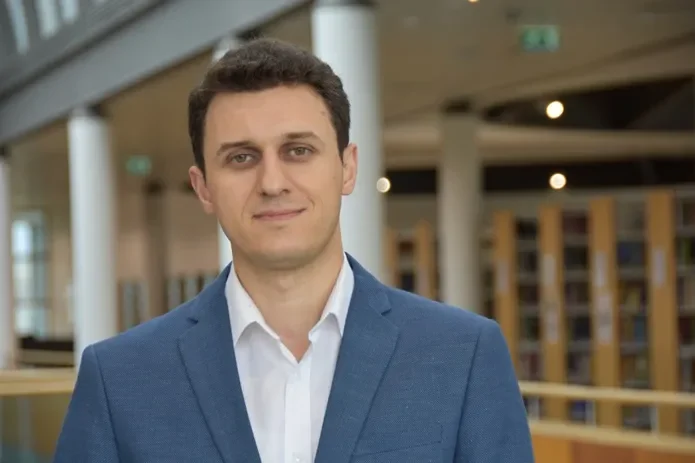

Turn up the volume on local voices to build peace
Dr Gëzim Visoka, Assistant Professor of Peace and Conflict Studies at DCU School of Law and Government chats to Spotlight on Research about his work.
We hear a lot about wars and conflicts around the world, but Gëzim your research is about what happens after conflict.
Why is that such an important area to analyse?
“Conflicts are complex, and building states and peace following conflict often involves many actors. Following a conflict there is often competition for power, and the international community may intervene and impose solutions.
My interest is in looking at how this process happens, how states fall into violent conflict and the prospects and possibility for recovery afterward, and my work has focused on areas such as Kosovo and the Balkans and East Timor.”
How did you become interested in the area of conflict, and building states and peace?
“I am from Kosovo. I was 13 when the war started, and I have personally experienced most of the stages of the conflict cycle. I remember seeing the UN peacekeepers driving tanks in the town, and I was displaced. I think that is why I put such emphasis in my research on capturing the local knowledge of an area that has experienced conflict. This local insight is often overlooked when solutions are being imposed by the international community.
It is a major issue, because local knowledge helps us to critically analyse and understand a situation, but it is not being heard.”
How do you source information for your research?
“As well as reading the literature and examining policies, I talk to local communities and then I seek to triangulate their accounts with other sources and data, to critically analyse the information that can tell us more than the policies. I think this is an important function of academic research, to seek out and verify these local narratives so that they can help to inform how peace is built.”
What are the big challenges of carrying out research on local knowledge post-conflict?
“There are some very practical challenges involved in travelling and talking to people in areas where there has been conflict. In some places, your passport may not be recognised, and there can be linguistic and cultural barriers to overcome.
It can also be challenging to explore and see are people telling the truth, or imagining a narrative that suits them.”
How do you get the research findings out to the wider world?
“Mostly through writing and editing books, handbooks and journal papers. In this regard, I am looking a few years hence - I am writing proposals for books that would be published in 2022.”
What motivates you in your research?
“This kind of research is a very lonely, lengthy, messy and difficult process, but what drives me to keep going is to offer a different truth. Academia can provide that independent voice, that platform for other narratives that have perhaps been overlooked or suppressed, and I believe that through this critical research, we can uncover the dynamics of how the world operates, and make a change by proposing knowledge that does not necessarily suit incumbent governments but certainly influences the future prospects for a better world.
The feedback from other scholars in the area is rewarding, of course, but I think you really need that inner motivation, to find it morally and personally rewarding that your work could have such an impact.”
And what do you do to take a break?
“This field moves very fast, something happens nearly every day in areas of conflict. It can be hard to switch off or even slow down because there are so many opportunities for research, but I think I take a break by switching from one project to another.
Having our daughter has made me slow down a little though, she helps me to balance things better.”
